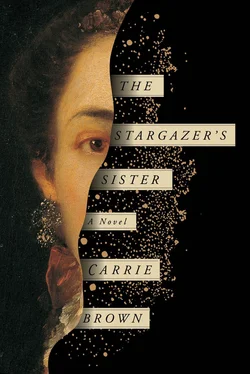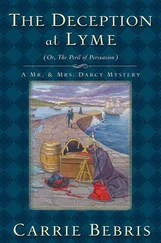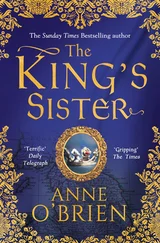The coffin maker down the street is always busy, though. Lina can hear his shop ring with the sounds of saws and hammers striking nails from dawn to past dark.
In the orchard, the fruit trees are bound in ice. Smoke from the chimneys ascends into the light of the falling snow.
When they go to church, the only time Lina is allowed outside, she sees the fires glowing at night on the banks of the Leinestrom. In the winter twilight they look like the pink and yellow wax flowers that Sophia used to fashion.
At eleven, Lina is smaller and thinner than other children her age, a result of frequent illness. This winter she has been kept inside most of the time, even on milder days. She is no longer allowed to go and watch the others skate on the canal.
The house has been lonely. Alexander and William have been in England for months in service to King George to protect England from an invasion by the French, but Jacob has somehow contrived a discharge from the Foot Guards and has returned to Hanover and taken up a position with the court orchestra. She wishes it were William who had been discharged, not Jacob.
Sometimes Jacob does not come home at night, and then their mother berates their father, who is sent out on fruitless forays to search for him, even though Jacob is now a grown man.
Jacob appears eventually in the mornings, foul-tempered, with his clothes torn and dirtied and sometimes bloodied.
One morning he storms into the house and frightens Hilda by throwing his filthy boots at her. When he sees Lina on her stool by the window, he grabs her and locks her head under his arm. He is laughing, but it is an awful laugh.
He will throw her outside and bury her headfirst in a snowbank, he tells her. No one will find her until spring.
She bites him, hard enough to draw blood.
Hilda screeches.
Her mother rushes into the kitchen at the sound of the commotion.
As punishment, Lina is made to sit for the remainder of the day in a chair by the wall.
When her father comes home, he puts bread in her lap, secretly, but she will not eat it. She hides it under her apron for later. Tears stand in her eyes, but she tips her head back so they do not fall. She understands that her father’s defense of her against her mother or against Jacob lacks authority.
Her father only sits before the fire with his hand over his eyes.
Hilda creeps into the room and brings him tea, throwing fearful glances at Lina, as if even to be caught looking at her is dangerous.
—
LINA IS GLAD FOR the evenings when Jacob is not at home. Then only she and Hilda and Dietrich — the baby born soon after the earthquake, now a six-year-old who speaks little and who has the slow, grave manner of an old man — are there, along with the newest baby, Leonard, who arrived safely three months ago and sleeps in his cradle by the fire. Leonard is already too big for the cradle, his head in its white cap bunched up against the spindles of the cradle like a goose’s fat breast. Lina makes silly sounds, pretending to play the oboe — too-tee, too-ta! — that make Leonard laugh, a baby’s chortle.
Lina and her father live for William’s letters from England, his account of the regiments’ travels, the books he buys to occupy him while he is with the Guards, the pamphlets he reads: John Locke’s Essay Concerning Human Understanding. James Ferguson’s Astronomy Explained. Robert Smith’s Harmonics. He promises to bring these books to their father when the Guards return to Hanover. When she thinks of William in his uniform, a red coat — with a swallow’s nest for the drummers — and straw yellow breeches, a sprig of oak leaf in his hat, she feels a mixture of pride and fear.
Finally at sunset on the day of her punishment for biting Jacob, Lina’s mother allows her to leave her chair. The sky outside the window is black. The snow has ceased falling, at least for a time. When Lina stands, her head swims, and her knees ache.
She is given a bowl of soup to eat alone in the kitchen, and a basket of wool for knitting stockings when she finishes.
Her father eats his soup in front of the fire, sighing. His gray hair is like two untidy bees’ nests sprouting from his head above each ear. He sits with his feet nearly touching the fire, transcribing scores on a lapboard. He was in the duke’s orchestra for a time, and he played oboe in the Foot Guards, but now the music pupils who come to the house are his only source of income. Occasionally the music director who walks with a stick raps on the door, bringing him scores to be copied or transposed. Yet the work does not bring enough money, Lina knows. The house is filled with invisible anger flowing from her mother to her father, Jacob’s temper like a slow-burning fire always in their midst. The slightest puff of wind, the slightest provocation, and a conflagration flares.
Jacob has left the house again after shouting at everyone that the soup tastes like mud.
Lina goes to sit on the stairs to do her knitting.
Dietrich has been put to bed. Leonard sleeps in his cradle. He is a sweet-tempered baby, and Lina likes to pick him up and hold him close and smell his baby smell.
Her mother has said enough schooling for Lina; she is too sickly. Maybe she can resume later. Meanwhile she can go nowhere and do nothing. Her only comfort now is Leonard and the rumor that the Hanoverian regiment is expected home any day.
Inside her she feels the familiar Überangst.
—
THE FIRE SPITS, sleet ticks against the window. Finally she is unable to sit any longer. She stands up on the stairs. The stockings hang down the steps emptily, her absent brother’s phantom legs. She makes them dance a little. Then she begins in a quiet voice to sing. She sings “Spring Greeting.” “Goodbye, Winter.” “I Walk With My Lantern.”
This year on Saint Martin’s Day she was allowed to walk with the other children for the first time, caroling in the streets and carrying her own lantern. Food has been scarce for some months now, but for the feast day there were bonfires along the river and gingerbread men and roast goose, its delicious crackling skin. The castle on the hilltop was lit with a thousand candles.
Now she sings: I walk with my lantern and my lantern with me.
Her father bends over his scores, scribbling, his hand disarranging his hair, ink on his bald crown.
“Hush, hush,” he tells her. “No singing.”
But then he stops the scratching of his pen and leans back in his chair. He looks up at her on the stairs. When he smiles at her, she puts down her wooden knitting needles and her stocking. She walks sedately down the stairs and around the room, singing, her imaginary lantern held before her.
There above the stars shine, and we shine here below. My light is off, I go home, Rabimmel rabammel rabum.
Her father taps the beat on his writing table. His expression is fond.
“Listen to her,” her father says to her mother, who sews beside the fire. “There is great sweetness in that voice. That little voice will be a big voice one day.”
Her mother does not look up. “Time for bed,” she says.
Lina disdains to look at her mother.
She walks up the stairs, lantern held high.
—
THAT NIGHT LINA WAKES to the sound of voices through the wall. At first she thinks she is dreaming: William and Alexander are home?
She rolls over in the bed she shares with Hilda. Her head feels hot. Her neck hurts her strangely, and her ears throb and ache. She lies still and listens to the murmur of the conversation in the next room. Hilda snuffles and tosses an arm.
Lina is sure she is awake now, that those are her brothers’ voices. But why do tears run down her cheeks? She thinks she has been crying for a long time, for the pillow is wet when she turns her head, and her neck hurts.
Читать дальше












